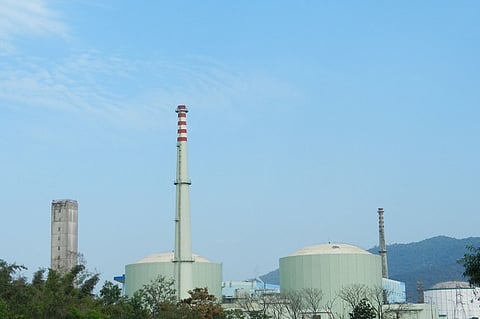

Environmentalists in Karnataka’s Karwar are alarmed over the proposed expansion of the Kaiga Atomic Power Station by the National Thermal Power Corporation (NTPC). The power plant which has currently four units, was recently in the news after Unit-1 of the plant ran uninterrupted operations for a record 940 days with even Prime Minister Narendra Modi calling it a major feat. At present the power is supplied to Telangana, Andhra Pradesh, Tamil Nadu, Kerala, and the Union Territory of Puducherry with 33% of power reserved for the home state.
But setting up the fifth and sixth unit of the plant will result in felling of thousands of trees. Moreover, activists are questioning the practicality of setting up a nuclear power plant with the prevalence of other safe and cheaper power generating options like solar and wind plants.
In a joint statement by three local environmental associations— Uttara Kannada Zilla Psrisara Samrakshana Samiti, Bedti Aghanashini Kolla Samiti and Vruksha Laksha Andolana have urged the Centre not to go ahead with this proposal citing various reasons. This comes a day ahead of the mandatory public consultation meeting set to take place.
Environmental groups point out that the Kaiga nuclear power plant complex is situated amidst tropical rain forests in the foothills of Western Ghats, which is the principle source of water for south India and hence, no further damage should be done to the ecologically sensitive area. They also point out that Kaiga is the world’s only nuclear plant that is set up in a rainforest.
“At a time when protecting the environment has become the paramount importance from the climate change perspective, further destruction of forest of Kaiga region means the step is in a backward direction only. So, it is in the best interest of future ecological security of the subcontinent, Government of India needs to abandon this proposal,” they said in a statement.
Sahadev Shivapura, another environmental activist, said, “There are a total of four dams in the upstream of Kali river. We recently saw what happened in Kerala, if such a tragedy occurs, what will happen to the people living in the entire region.”
They also claimed, due to the existing plant there is a spurt in cases of cancer over the past two decades. Experts are of the strong opinion that this is because of radiation pollution caused by the nuclear power plant. Addition of more units, therefore, can further complicate the public health issue, they said.